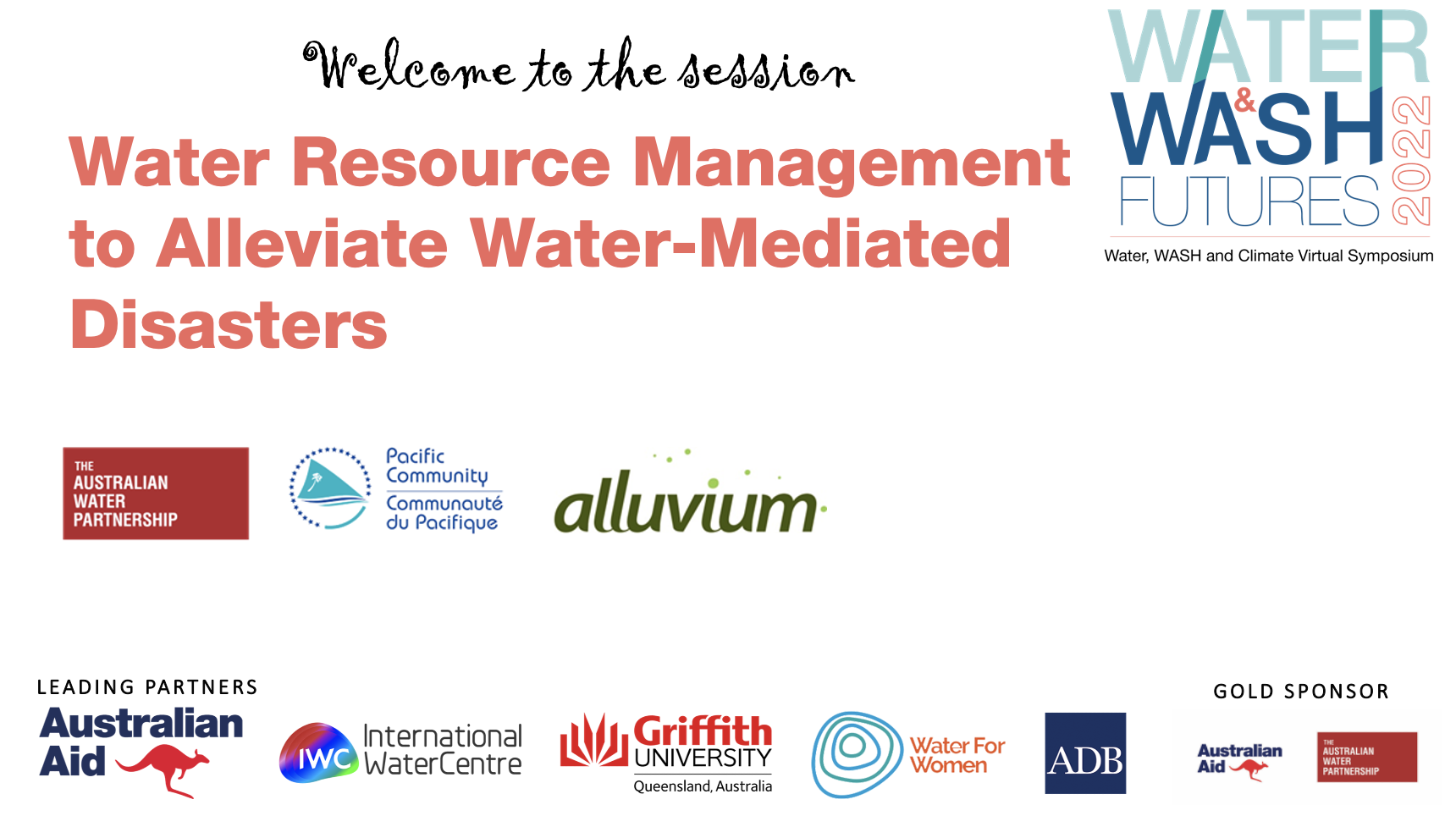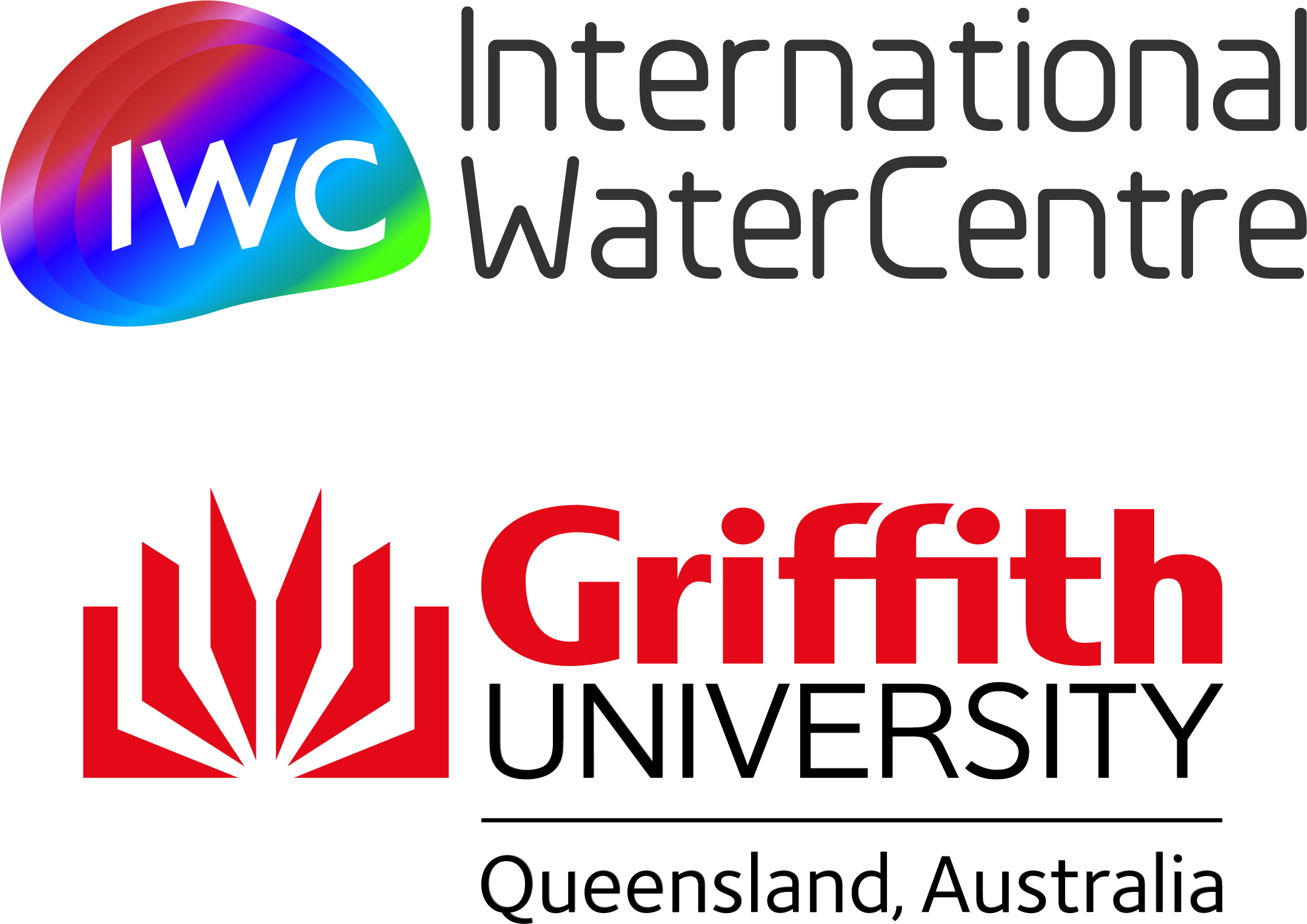Session Convenors

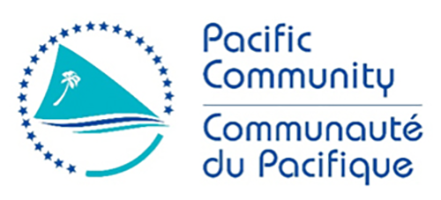

Session Information
Water is the link through which most countries and communities will feel the impacts of climate change. Water mediated disasters – floods, landslides, tsunamis, storms, heat waves, cold spells, droughts and waterborne disease outbreaks – are directly impacting (e.g. damage to buildings, crops and infrastructure, and loss of life and property) and indirectly impacting (e.g. losses in productivity and livelihoods, increased investment risk, indebtedness and human health impacts) communities globally and particularly in the Asia—Pacific region.
In 2021 alone:
- More than 18 million people in India were severely impacted by floods and cyclones
- More than 500,000 people were swamped by floods in Bangladesh
- A third of Nepal suffered from floods or landslides with many occurring outsides of the traditional monsoon season
- Ten island states were among the 15 countries identified by the WorldRiskReport as having the world’s highest disaster risk, with Pacific Island Countries occupying the top three places.
The occurrence and severity of water-mediated disasters will be worsened by climate change. According to the latest IPCC report (2022), an increase in global temperatures will result in higher chances of heatwaves across Asia and increased intensity of storms and tropical cyclones in small islands of the Asia-Pacific Region. Sea-level rise in the Asia-Pacific region has already impacted coastal cities and rural communities and will continue to cause land loss leading to food and water insecurities.
Co-convened by the Secretariat for the Pacific Community (SPC), Alluvium International and the Australian Water Partnership, this session will explore the role water resources management can play in alleviating water-mediated disasters. The session will use the disaster risk management cycle (prevention, preparedness, response and recovery) as a frame to guide this discussion.
Session Recording
Click image to play
Session Resources
The Water and WASH Futures team are pleased to have partnered with the following organisations to deliver this forum.

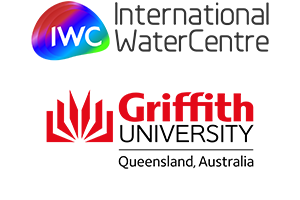
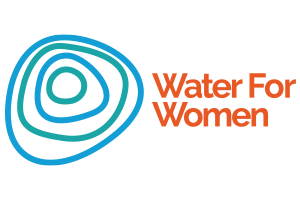

The Water and WASH Futures team are grateful to have received sponsorship from the following organisations for this event:


